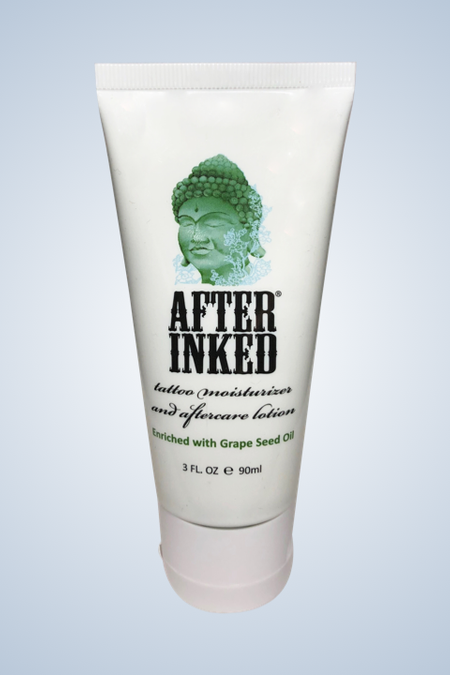Leading Up To Your Tattoo Session You Should:
Get Hydrated Stay hydrated leading up to your tattoo session. While it’s generally advisable to stay hydrated at all times to maintain proper bodily function and good health, it’s especially important when you are getting a tattoo. Staying well hydrated makes your skin more resilient, which will allow it to endure longer tattoo sessions, and help you heal faster following your tattoo session. Moisturize Just as you should hydrate your skin from the inside by drinking water, so too should you hydrate your skin from the outside with moisturizer. Lotion your skin once or twice a day for the week leading up to your tattoo session. Keeping your skin hydrated is one of the most critical measures to take because it makes it easier on you and the tattoo artist. Please don’t moisturize right before your session, however, as this could affect the tattoo machines function. Shave Shave the area where you will be tattooed to create the smoothest possible surface to work on. If you aren’t used to shaving, ask someone you know who shaves regularly for assistance. A cut or perforation of the skin, no matter how minor, could make it impossible for you to get tattooed on schedule, so pay careful attention not to break the skin during a shave. A small amount of light body hair or peach fuzz is acceptable, but for ideal results it’s best to have no trace of hair. If you opt for waxing, make sure you do it well in advance of the date you will get your tattoo, but not so far away that your hair will have time to grow back. Your skin needs time to heal after a wax before you can get a tattoo. Remember, after you shave it’s important to moisturize the skin to keep it healthy and ready for a tattoo session. Avoid using alcohol-based aftershave to moisturize because it dries out your skin. You should be shaving the area between one and three times a week in the weeks leading up to your tattoo session, especially if you have lots of body hair. Aside from making it easier for the tattoo artist to work, removing the hair will help moisturizing lotion get into your skin and get your skin ready for the tattoo. If you experience razor burn, stop shaving and leave yourself at least a week to heal before going in for the tattoo session. Exfoliate Removing impurities from the pores in your skin is another way of making the procedure more comfortable for you and easier for your tattoo artist. Exfoliate gently without irritating the skin by using a loofah or an over-the-counter exfoliant. Exfoliating will help the moisturizer do it’s work. Rest Get a good night’s sleep before your tattoo session. Head to bed early and don’t imbibe any alcohol or drugs the night before. You’ll want to be well rested before getting a piece of permanent body art. Eat Make sure to eat a healthy, balanced meal before heading to your tattoo session. It’s not uncommon for people to lose their appetite from nerves then pass out from fatigue in the tattoo chair. Although it may seem as though your body just lays idle while you’re getting a tattoo, it actually exerts a great deal of energy during the tattoo process. Besides, when you are hungry, pain management becomes more difficult, making the tattoo process more unpleasant for everyone. Be especially mindful to eat before a long tattoo session. Bring Snacks (For Longer Sessions) If you are getting a larger piece done and have scheduled in a longer session, be sure to bring a light snack at the very least. A snack comes in handy if you get hungry or want a way to distract yourself from an especially uncomfortable portion of the tattooing process. Choose a snack that isn’t messy and can be eaten with one hand. Depending on where you're get your tattoo done, you may get a short break during longer tattoo sessions. These breaks typically aren’t long enough to afford you the time to go out to eat. Regardless, you shouldn’t leave the parlour during a tattoo session to avoid contamination. Don’t Come if You’re Injured If you sustain any injury leading up to your scheduled tattoo session, call your tattoo shop immediately and alert your artist to the extent of your injury. Your artist may recommend that you reschedule to give your body time to heal the existing injury before you put it under the tattoo machine.What Not to Do Before a Tattoo Session
Tattoos won’t heal well on freshly damaged skin, so anything which causes damage to the skin must be avoided. That includes getting a tan, a fake tan, a sunburn, a chemical peel, or any cuts or scrapes. Weight lifting and strenuous exercise should also be avoided at least 2 days before the tattoo session. Putting strain on your muscles can cause swelling and soreness which may exacerbate the sensation of the tattoo and impact healing time. It can also cause your skin to stretch slightly which can end up with your tattoo being distorted when your skin returns to normal.The Day of Your Session You Should:
Come Alone While most tattoo shops will let you bring a friend or significant other to share the big moment, it generally isn’t advised to bring people who aren’t there to get tattooed themselves. Onlookers get bored and may even get in the artist’s way. If you must bring someone, warn them that they will need to stay in the designated waiting area unless invited chair-side by the tattoo artist. Children and infants are generally not permitted in tattoo shops as they can cause distractions, damage to equipment, or interrupt the tattoo artists hard at work. Dress Appropriately Dress comfortably and appropriately. Prepare for a long session and dress accordingly. Avoid tight and constricting clothing. Pay some mind to where you will be getting tattooed and make sure the clothing you wear leaves the area easily accessible. Bring a Comfort Item Bring a pillow if you intend to lay down or if you will be lying prone for a long time while getting tattooed. Bring Entertainment Getting a tattoo is exciting, but getting tattooed can get boring. Bringing some non-intrusive entertainment which won’t disrupt your tattoo artist is a great way to pass the time and distract yourself from the pain. You’re more than welcome to bring portable entertainment like an mp3 player, tablet, or laptop for some passive entertainment. Movies, music, and TV are fine, but anything which requires motion - like playing video games - is not permitted, so leave the portable games at home. Don’t Rush When you come in to get a tattoo done, relax and let the artist take their time. Don’t schedule commitments immediately after your tattoo session. If you are in a rush you will create an air of urgency, and your tattoo artist’s work may be affected. Be Sober Do not use any numbing balms or topical creams on the area being tattooed on the day you are getting the tattoo. While it is acceptable to take over-the-counter pain relievers during your tattoo session, never use drugs or alcohol to numb the pain as they can lead to various complications and jeopardize your safety and the quality of your tattoo.While You Are Being Tattooed
Don’t Touch Your Tattoo Never touch the affected area or let anyone else other than the tattoo artist touch it. Your tattoo artist will be wearing sterile gloves and using sterile equipment, so any other contact can lead to contamination and infection. Don’t Touch Any Tattoo Equipment Leave the equipment to the professionals. Not only will you contaminate anything you touch but your tattoo artist will be unimpressed, to say the least. Don’t Move Around It’s acceptable to talk during your session so long as you don’t begin gesturing with your hands or body. Doing so will disrupt the tattoo artist and could lead to some unpleasant repercussions. Stay still and be patient.Our Favourite Tattoo Aftercare

After Inked
After Inked Tattoo Moisturizer delivers effective skin moisturization and helps to preserve the colours of your tattoos. There's no petroleum so it won't stick to or stain your clothes. This moisturizing skin lotion, enriched with Grape Seed Oil, can also be used on any permanent makeup procedure on lips, brows, eye liner, and areola, as well as an after-laser tattoo removal moisturizing lotion. After Inked is Dermatologist tested, non-allergenic and non-irritating.

PurSan
PurSan Aftercare is a specially formulated Vegan skin cleanser used to clean and moisturize as part of an aftercare regimen for fresh tattoos and piercings. It revitalizes, refreshes and purifies skin without drying it out. Gentle yet effective, PurSan contains no parabens, fragrances, colourants or alcohol. Chloroxylenol (PCMX) is a proven antimicrobial ingredient shown to be effective against bacteria and viruses without burning or irritating the skin. Hydroxypropyl Methylcellulose (Hypromellose) is an ultra-high grade lubricant ideal for sensitive skin.


